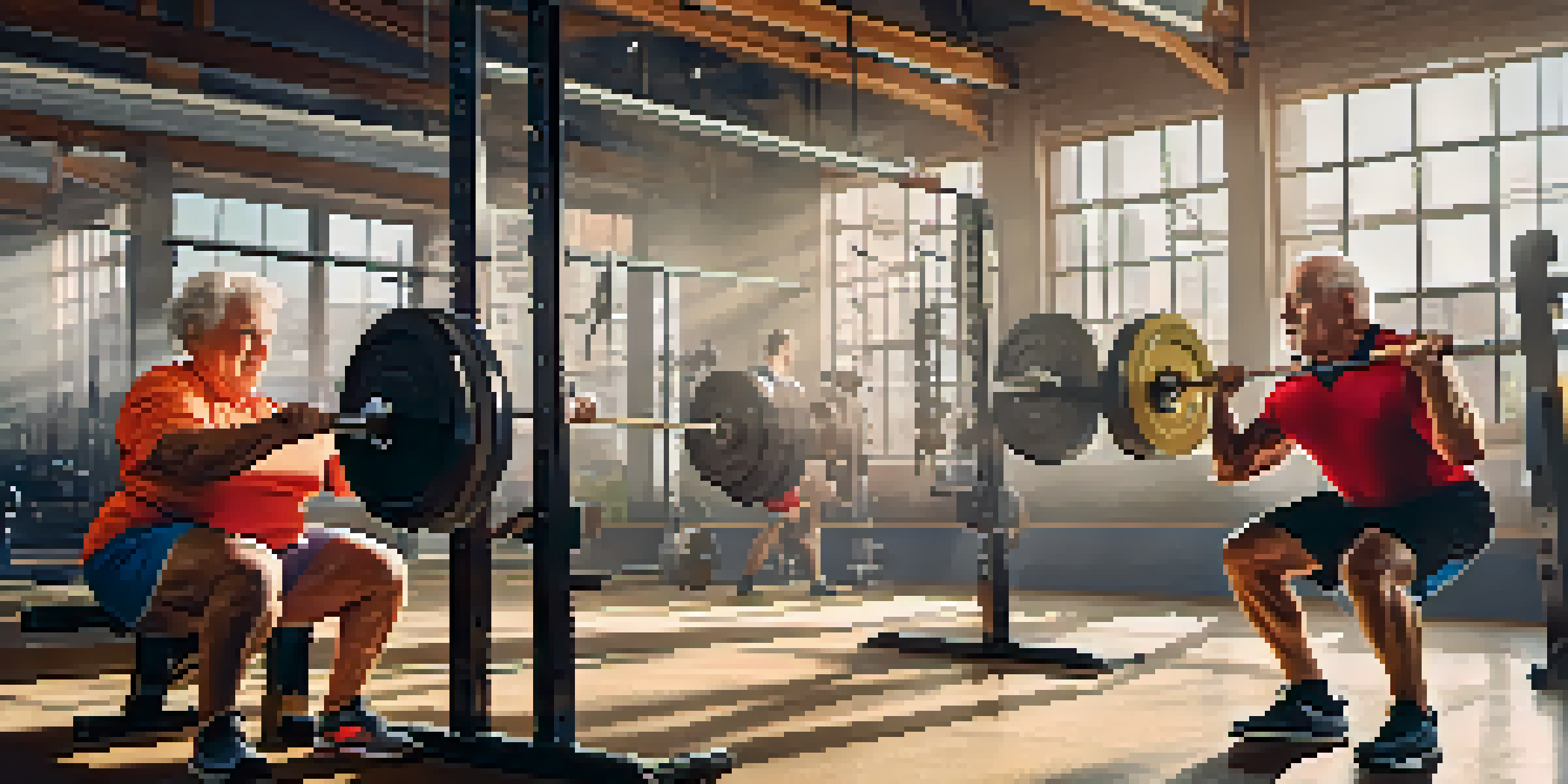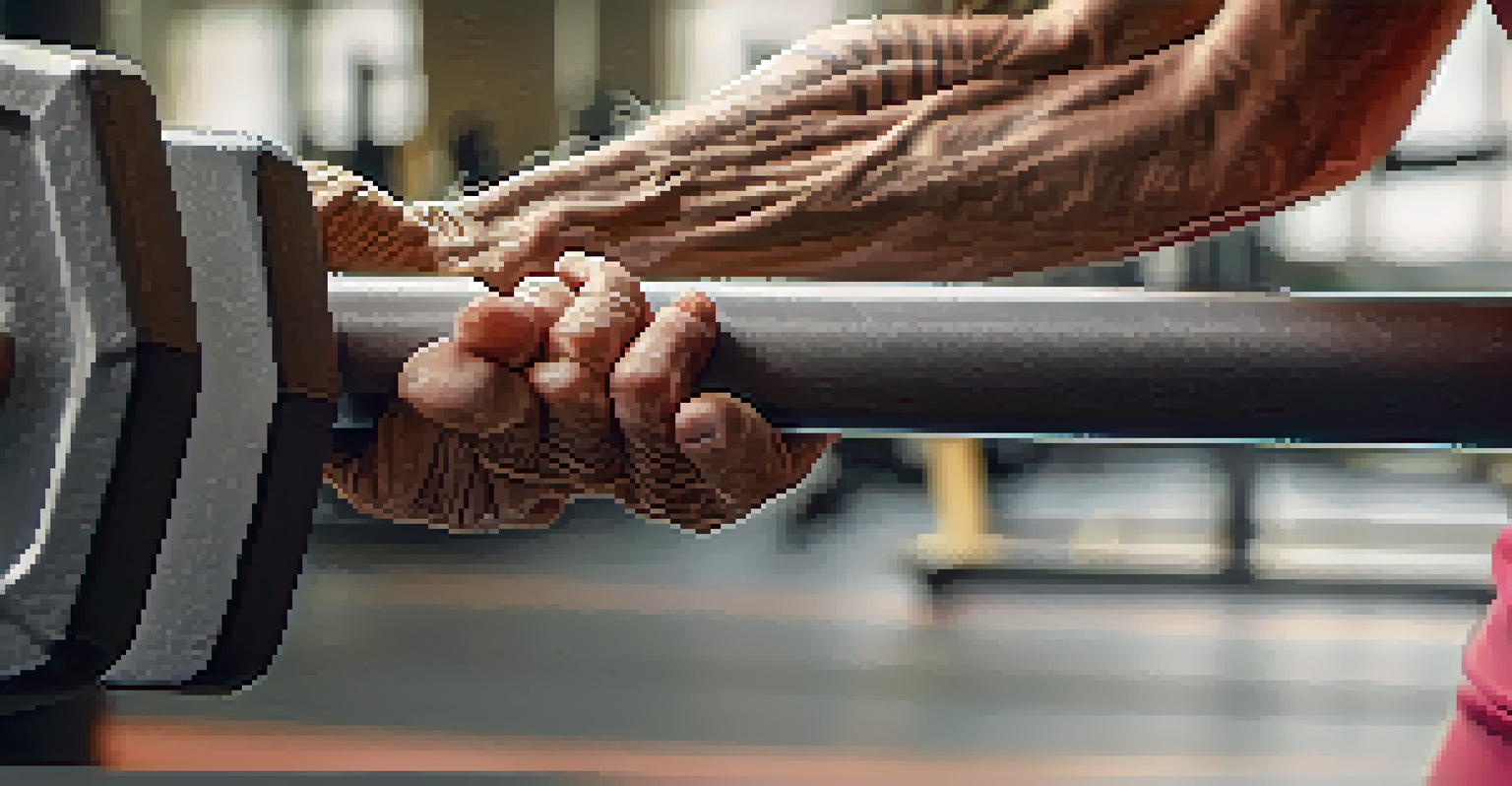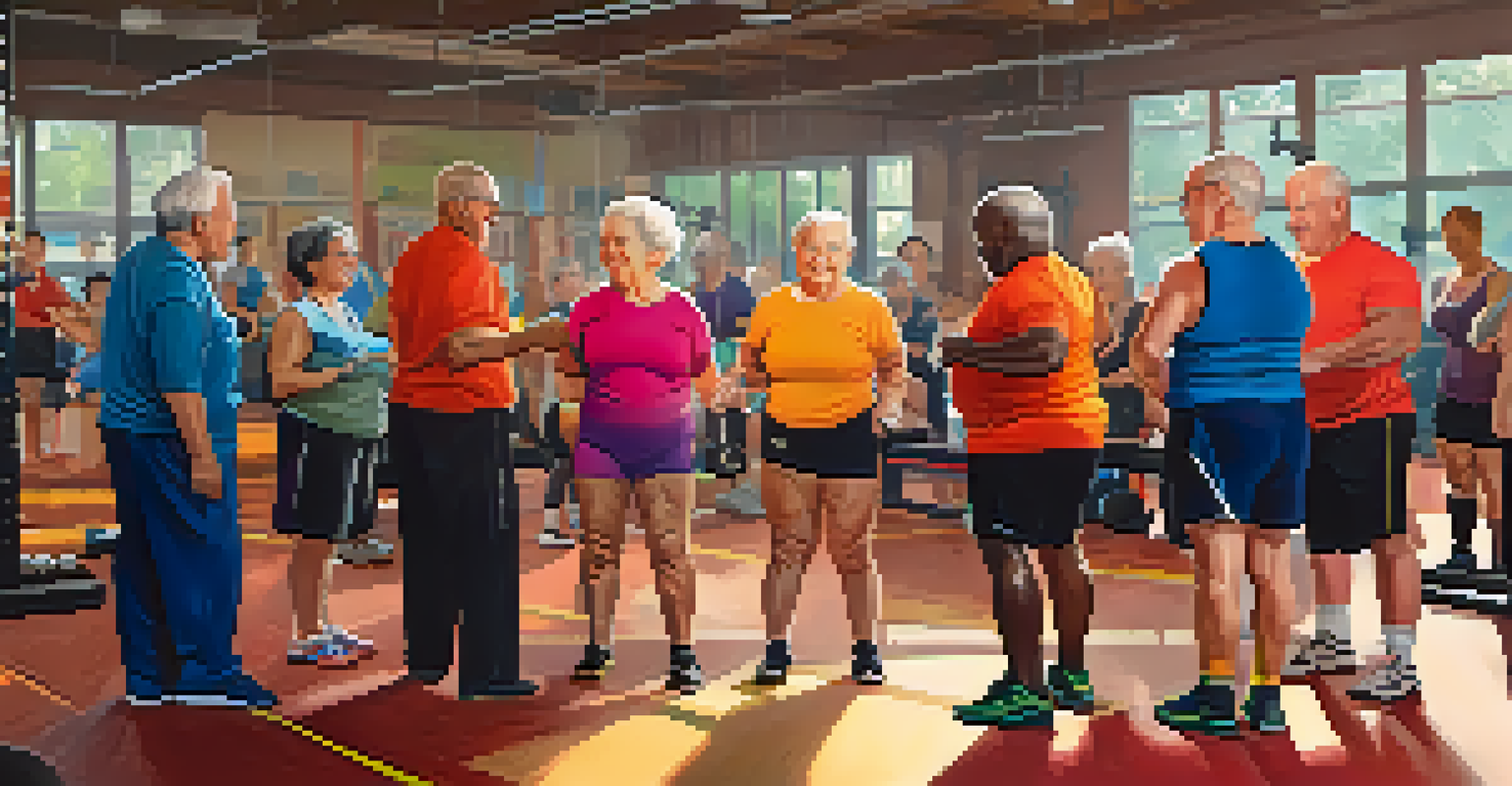The Science Behind Powerlifting and Healthy Aging

Understanding Powerlifting: A Brief Overview
Powerlifting is a strength sport focused on three main lifts: the squat, bench press, and deadlift. Unlike bodybuilding, which emphasizes aesthetics, powerlifting prioritizes raw strength and performance. This emphasis on strength can have profound implications for overall health, especially as we age.
Strength does not come from physical capacity. It comes from an indomitable will.
As we grow older, maintaining muscle mass and strength becomes increasingly important. Studies show that regular strength training, such as powerlifting, can help combat sarcopenia, the age-related loss of muscle mass. This not only aids in daily activities but also improves overall quality of life.
Powerlifting encourages proper form and technique, making it accessible for individuals of various ages and fitness levels. With appropriate coaching and modifications, even beginners can safely reap the benefits of this strength sport, proving that it's never too late to start.
The Physiological Benefits of Powerlifting
Powerlifting offers a range of physiological benefits that contribute to healthy aging. One key advantage is increased bone density, which is crucial for preventing osteoporosis—a condition that affects many older adults. Lifting heavy weights stimulates bone growth, making the skeletal system stronger.

Additionally, powerlifting enhances metabolic health by improving insulin sensitivity and regulating blood sugar levels. This is particularly beneficial as the risk of type 2 diabetes increases with age. Engaging in strength training can be a proactive way to manage metabolic health over the years.
Powerlifting Supports Healthy Aging
Engaging in powerlifting helps maintain muscle mass and strength, crucial for combating age-related decline in physical health.
Moreover, powerlifting has a positive impact on cardiovascular health. Contrary to the misconception that lifting heavy can harm the heart, studies have shown that regular resistance training can lower blood pressure and improve heart function, contributing to a healthier circulatory system.
Mental Health Benefits of Powerlifting
The mental health benefits of powerlifting are just as significant as the physical ones. Engaging in strength training can lead to improved mood and reduced symptoms of anxiety and depression. The endorphins released during a workout can create a sense of euphoria, often referred to as the 'runner's high.'
The greatest glory in living lies not in never falling, but in rising every time we fall.
Additionally, the discipline required for powerlifting fosters a sense of accomplishment and boosts self-esteem. Setting and achieving personal lifting goals can instill confidence and create a positive feedback loop that encourages continued participation in physical activity.
Furthermore, the social aspect of powerlifting—whether through group training or competitions—can combat feelings of loneliness and isolation. Building a community around shared fitness goals can lead to lasting friendships, enhancing emotional well-being as we age.
Safety Considerations for Older Lifters
While powerlifting has numerous benefits, safety should always be a priority, especially for older adults. It's crucial to start with a proper warm-up and to use appropriate weights that match individual fitness levels. Gradually increasing the load can help avoid injuries while still promoting strength gains.
Working with a qualified coach or trainer can make a significant difference in ensuring safe lifting practices. They can provide personalized guidance, correct form, and modifications tailored to each individual’s needs, which is essential for older lifters who may have pre-existing conditions.
Enhances Mental Well-Being
Powerlifting boosts mood and self-esteem, offering a sense of accomplishment and community that benefits mental health.
Additionally, listening to your body is key. If something feels off, it’s important to take a break or consult a healthcare professional. A gentle approach that respects personal limits can lead to a sustainable and enjoyable powerlifting journey.
Nutrition: Fueling Your Powerlifting Journey
Proper nutrition is vital for anyone engaged in powerlifting, but it's particularly important for older adults. A balanced diet rich in protein, healthy fats, and carbohydrates supports muscle recovery and growth. Protein intake, in particular, is crucial for maintaining muscle mass as we age.
Hydration also plays a key role in performance and recovery. As we age, our thirst sensation can diminish, making it easy to overlook hydration needs. Keeping a water bottle handy and drinking regularly can ensure optimal performance during workouts.
Moreover, considering supplements like vitamin D and omega-3 fatty acids can support overall health and muscle function. Consulting with a nutritionist can help create a personalized plan that aligns with both powerlifting goals and healthy aging.
Creating a Sustainable Powerlifting Routine
Developing a sustainable powerlifting routine is essential for long-term benefits. Consistency is key; it's better to commit to shorter, regular sessions than to push too hard and risk burnout or injury. Finding a schedule that fits personal lifestyle can make all the difference.
Incorporating variety into workouts can also keep things engaging. Mixing in different lifts, rep ranges, and even cardio can prevent monotony and keep motivation high. A well-rounded approach not only builds strength but also enhances overall fitness.
Safety is Key for Older Lifters
Prioritizing safety through proper technique and gradual progression is essential for older adults to safely enjoy powerlifting.
Lastly, setting realistic goals helps maintain focus and enthusiasm. Celebrating small milestones along the way can create a sense of achievement and encourage continued progress, making powerlifting a fulfilling part of life as we age.
The Community Aspect of Powerlifting for Older Adults
Joining a powerlifting community can provide invaluable support and encouragement. Many gyms and clubs offer classes specifically designed for older adults, creating a welcoming environment for newcomers. This camaraderie can enhance the experience and motivate individuals to stay committed.
Participating in local competitions or events can also offer a sense of accomplishment and community. Many older lifters find joy in sharing their progress and celebrating achievements with peers, fostering a sense of belonging.

Lastly, online platforms and social media groups can connect older lifters across the globe. Sharing tips, experiences, and challenges can create a rich community that inspires and uplifts, proving that powerlifting is not just a sport but a way to forge lasting connections.